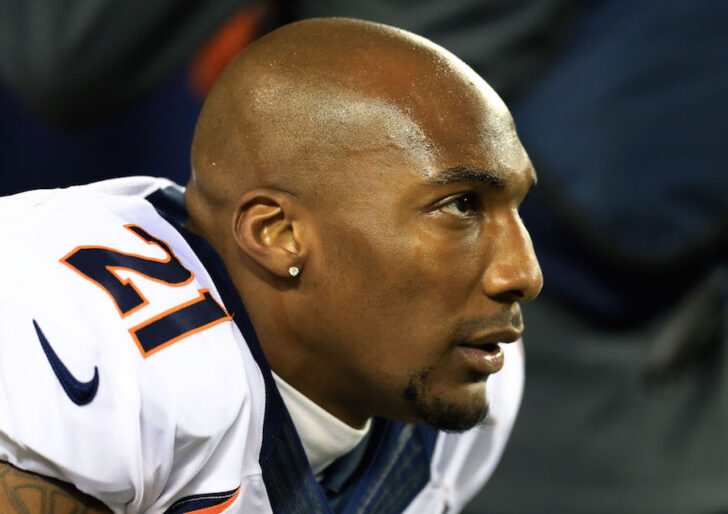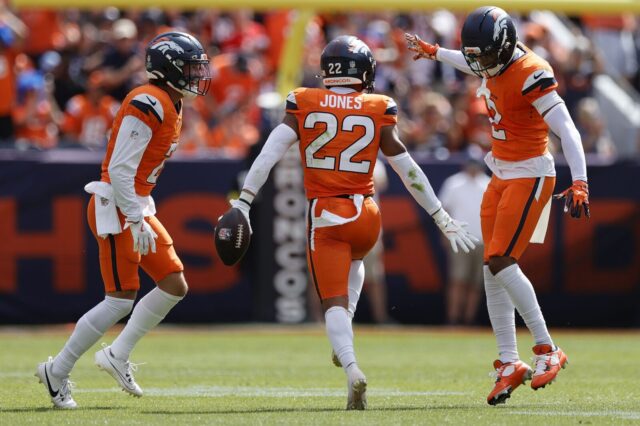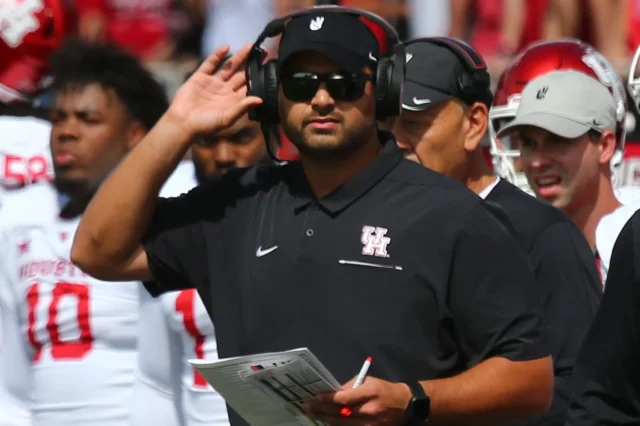Finding the play that cost the Denver Broncos a win on Sunday, and likely a trip to the postseason, isn’t easy. There are plenty of viable options – A.J. Derby’s fumble, Bennie Fowler’s drop, Gary Kubiak’s decision to go for it on fourth-and-goal from the Titans’ 6-yard line. One could even point to the nine plays that resulted in Denver’s “whopping” 18 rushing yards.
Those who suggest that an unnecessary roughness penalty that occurred in the second quarter, a play that resulted in a 20-yard swing and – ultimately – a successful field goal, was the play that cost the Broncos game, are simply wrong.
Yes, the final score was 13-10, a three-point loss. Yes, had that second quarter field goal not sailed through, or if it had never been kicked, the Broncos and Titans might have battled to an overtime thriller.
But that play didn’t cost Denver the game – it was almost the play that won it.
The play, or penalty as it were, was essentially a retaliatory act. Aqib Talib wasted no time, not even one play, to let Tennessee’s Harry Douglas know that what he’d done to teammate Chris Harris on the play before – a dirty, dirty block into Harris’ knee – wasn’t acceptable. By taking Douglas to the woodshed after the whistle and out of bounds, Talib added cheap shots to list of things that don’t fly in the No Fly Zone.
Instantly, Talib’s decision was hotly debated. Some said it was dumb – no penalty was worth putting the Titans in field goal range, especially in a tight game where Denver’s offense wasn’t doing anything and the defense wasn’t stopping Tennessee’s ground game. Others said it was the right thing to do – call it the hockey mentality, an eye-for-eye, Talib was dutifully standing up for a teammate who, quite conceivably, had just been taken out of the game or worse. Some agreed that Douglas had it coming, but that there might have been a better (see smarter) way to teach the Titans receiver a lesson – sneakier, later in the game, once the outcome was no longer in question.
Here’s the reality though: That play, or at least that mentality, is exactly what makes the Broncos defense so damn good.
There’s no point in debating whether Talib should have or shouldn’t have done what he did. That’s who he is. And that’s who a lot of players on the Broncos defense are. And that’s why they win.
It’s not about being dirty. It’s about having an edge. It’s about attitude and unity. There’s no judging Talib’s decision – it’s an all or none proposition. That’s Denver’s defense, and the bad must be taken with the good.
You want a player who always thinks with his head never with his heart? Then Talib is not your guy. But make no mistake, he’s vital to one of the NFL’s historically great defenses. No Talib? No edge. No edge? No Super Bowl 50, definitely no chance in hell of beating Tennessee 17-13.
When the Broncos were beat up in Super Bowl XLVIII, it was concluded that Denver was soft and the Seahawks were not. Seattle played physically and with bravado. Denver was a finesse team that relied on a precision offense that didn’t work well once it got punched in the mouth.
So what did John Elway do? He went shopping for some nasty. Chief among the defensive players he signed was Talib, well-known for his less than impeccable record, one that was dotted with questionable behavior. There was no questioning that Talib had both skill and moxy though.
Guys like Talib, T.J. Ward, Chris Harris, Darian Stewart and Derek Wolfe aren’t saints, which is exactly how and why the Broncos won a Super Bowl – heck, it’s why they’ve won at all over the past two years.
Taking a 15-yarder for roughing up Douglas? Well worth the penalty. That lone play woke up the Denver defense, which kept Tennessee out of the end zone on that drive and then didn’t give up a single point thereafter. The final scoreboard might suggest that those three points were the difference. Further examination reveals that an imminent 15-yard-penalty was the only thing that kept the Broncos in the game.
If Denver’s offense had the edge that Talib brings to the defense, the Broncos would be headed back to the Super Bowl.
Sadly, it doesn’t. And they won’t be.



